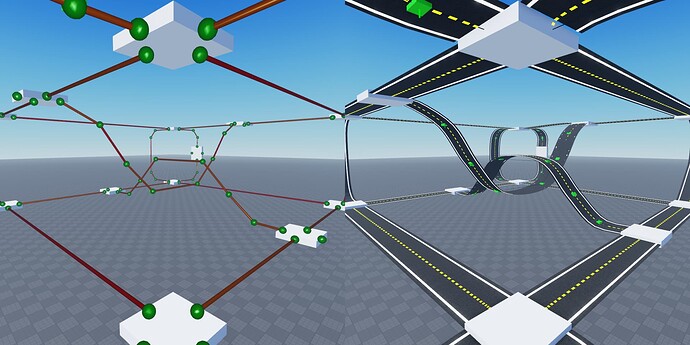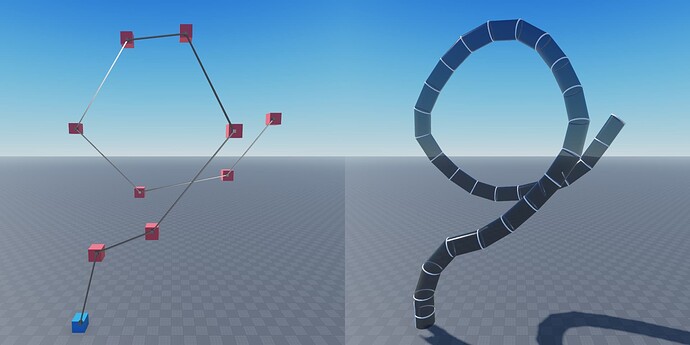Here’s a quick tip: You can build graphs using constraints at edit time and then parse those constraints into a data structure on runtime. This is nice because
- Constraints are visible in edit mode
- Constraints are easy to create and destroy
- Doesn’t require a plugin
WeldConstraints are a good option because they don’t require intermediate Attachments.
If applicable, you can take this one step further by using hoarcekat to draw the object that the graph represents.
Here’s a snippet for how I parsed the line graph in the bottom image.
local function GetPoints(part, points)
table.insert(points, part.Position)
local foundChild = false
for _, joint in part:GetJoints() do
if joint.ClassName == "WeldConstraint" and joint.Part0 == part and joint.Part1 then
if foundChild then
error("Node has multiple children")
else
foundChild = true
GetPoints(joint.Part1, points)
end
end
end
end
local points = {}
GetPoints(workspace.Start, points)
Note that the WeldConstraints are treated as directed edges that point from Part0 to Part1.


